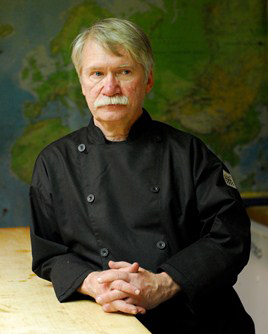Think Tank: The Most Important Question Is “Why?”
01 March 2014
 Change is challenging, but necessary for growth. When striving to be the instrument of positive change, a successful, simple way to intercept every reason given for resistance is to utter the single word, “Why?”
Change is challenging, but necessary for growth. When striving to be the instrument of positive change, a successful, simple way to intercept every reason given for resistance is to utter the single word, “Why?”
By Paul Sorgule, MS, AAC
Understanding that students learn differently today, the industry we serve requires evolving skill sets, and the impact of technology provides interesting alternatives to our established methods of delivery places educators in a position to think change.
Change is a concept that draws a good deal of conversation and a multitude of “how to” theories. When I checked in with amazon.com, there were more than 17,000 titles listed regarding the concept of change management. Everyone talks about change, yet the reality is that no one truly embraces the concept.
Change requires that we adjust how we act and react, how we approach our day and the responsibilities of our jobs. Change is hard, and it requires a mindset of openness and acceptance, as well as a proactive look at what we do and how we do it. Change will inevitably encounter resistance, and those who “get it” will face considerable hurdles as they move through a shift in operational paradigms. It takes courage and perseverance for leaders to promote the need for change and try to win over a team to the need for transition.
Organizations and industries that resist change are oftentimes faced with a loss of position in the marketplace, a declining perceived internal image, and even a loss of business. In essence, industries can either be ahead of the curve or in denial.
When we step back and look at the educational model that is used today, it would be challenging to say that it has evolved significantly enough to match the needs of a changing learning environment. We may not be using a blackboard and chalk, but far too often the model continues to promote a process of giving information to our students and testing their ability to retain what we determine is important. There are far too many stakeholders who need to have input into our educational models who are frequently ignored.
Those stakeholders include fellow educators, chefs, restaurateurs, vendors, students and parents. Yes, we typically have some form of advisory panel, but are we serious about including the feedback provided in our model? Do we ask the important questions that would define what we should be teaching and how we should be delivering that material?
The Latin root word for education is educo. The literal definition of educo is to draw forth. This would infer that we should be encouraging work involvement and feedback, setting the stage for students and other stakeholders to be active contributors to the educational process rather than simply recipients.
What is your approach? How is your curriculum built, and is it a true reflection of what future employers need? Is your method of delivery in sync with the way the 21st-century student learns? Are your faculty prepared to stay ahead of the curve and current with an evolving foodservice industry?
I fully understand the dynamic of accrediting-agency requirements, as well as those from state departments of education, but these organizations must also understand the impact of a changing environment. Our collective demonstration of a need for change will be significant if these organizations are to truly lead a metamorphosis for improvement. I know that our institutions have created a culture of standards that dictate how we operate, what we teach, how we deliver information and the way with which student success is measured. Educational institutions are the faculty who teach and, as such, should and must be responsive to the collective knowledge of that group.
Change is challenging and in many cases something that we would all prefer to avoid, but it is necessary. A good approach to the process is to simply intercept every reason given for resistance with the word: “Why?”
“We can’t do that!” Try it. “Why?” Whatever the reason, once we begin to challenge with “Why?” it frequently becomes a simple case of “That’s the way we have always done it,” or “That is our policy.” If the reason for change is compelling and well thought out, then a culture of tradition or policy can be changed.
As leaders in culinary education, part of your job is to ensure that students are prepared for the demands of a career in food and ready on day one to function effectively in a kitchen. Your job is to ensure that the institution where you work remains viable and recognized for quality in the marketplace, that your faculty are on top of their game and ready to teach, and that your entire organization is responsive to the needs of all of the stakeholders impacted by your educational model. If change is needed, the responsibility for creating an environment of acceptance and active involvement lies on your shoulders.
Start tomorrow with a simple question: “Why?”
Paul Sorgule, MS, AAC, president of Harvest America Ventures, a “mobile restaurant incubator” based in Saranac Lake, N.Y., is the former vice president of New England Culinary Institute and a former dean at Paul Smith’s College. Contact him at This email address is being protected from spambots. You need JavaScript enabled to view it., www.harvestamericaventures.com.
